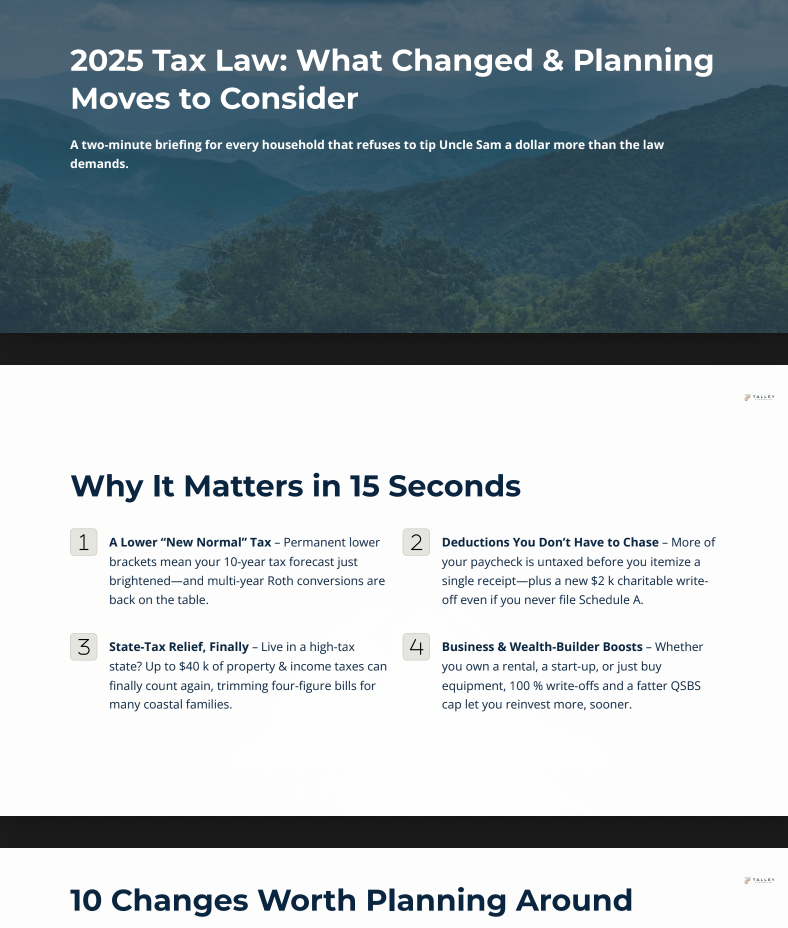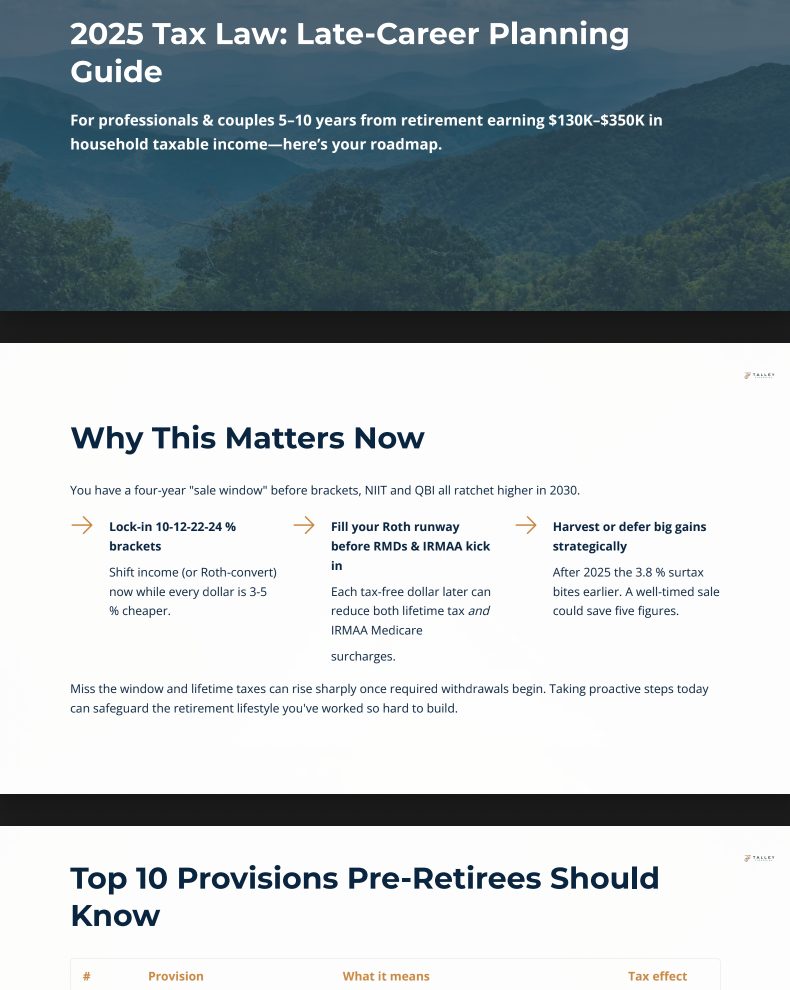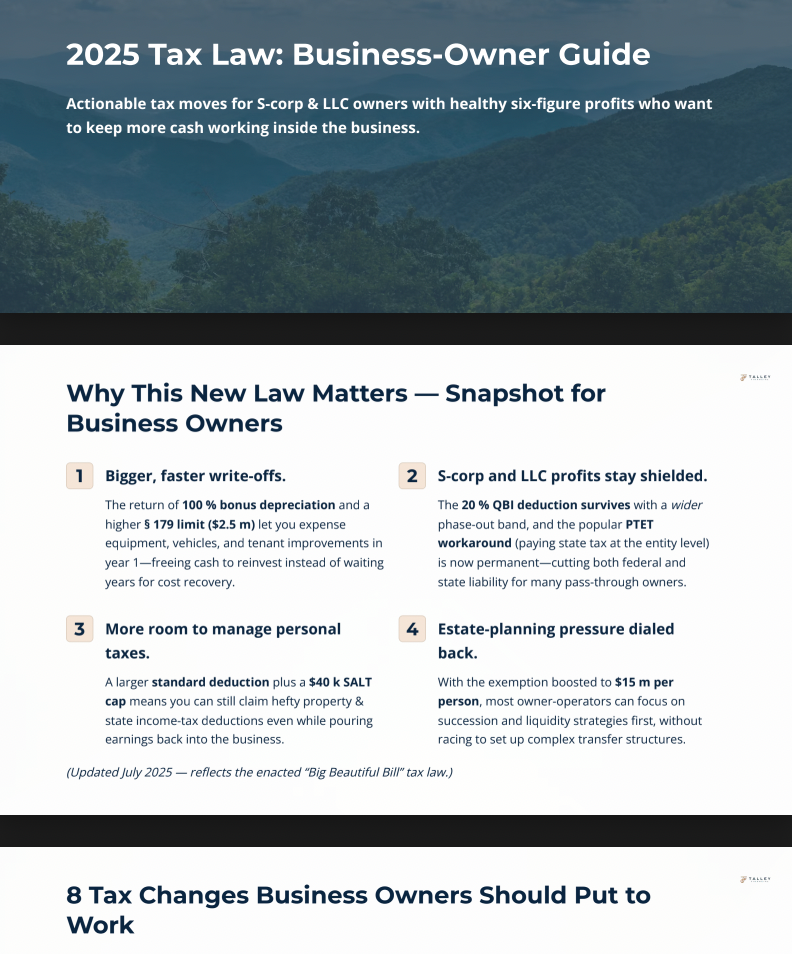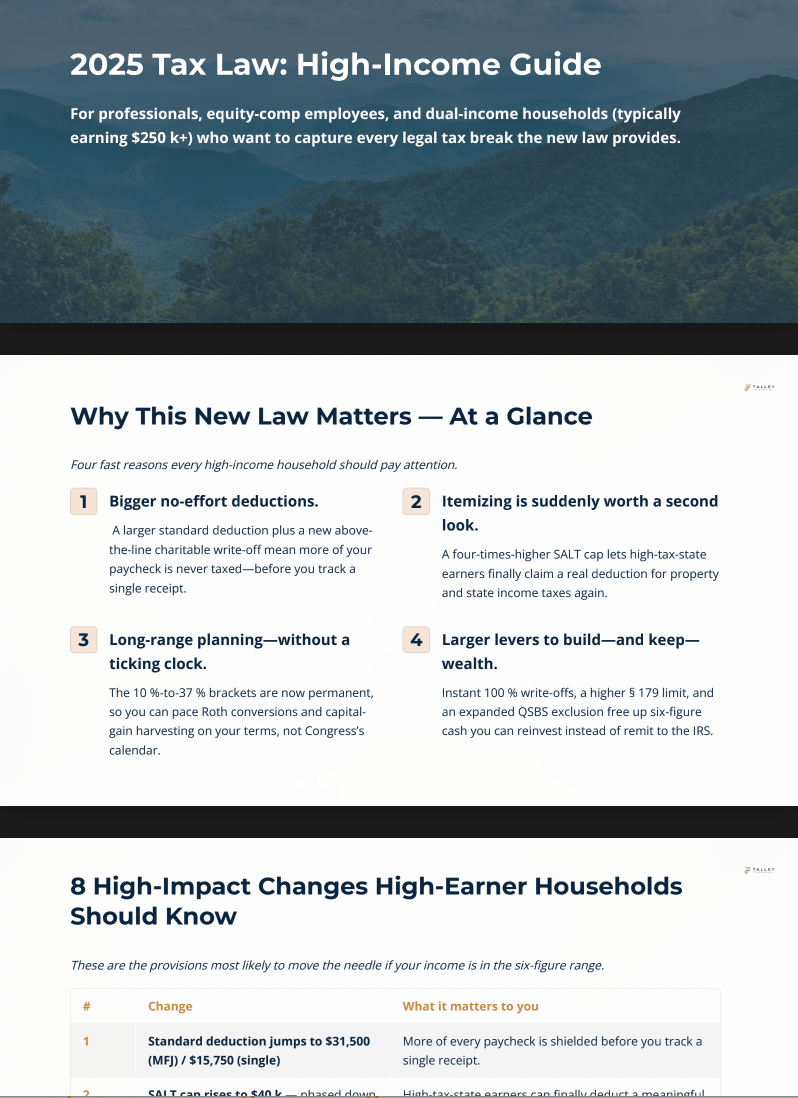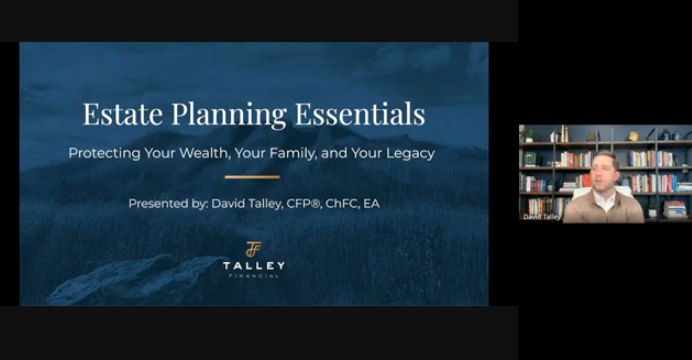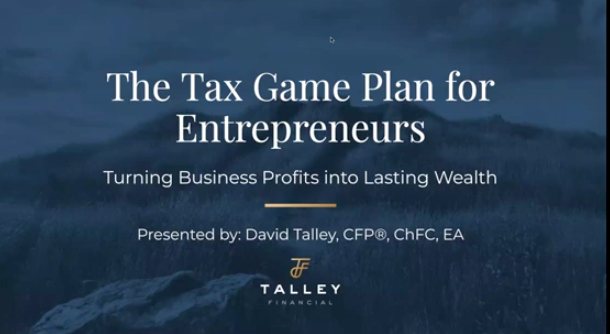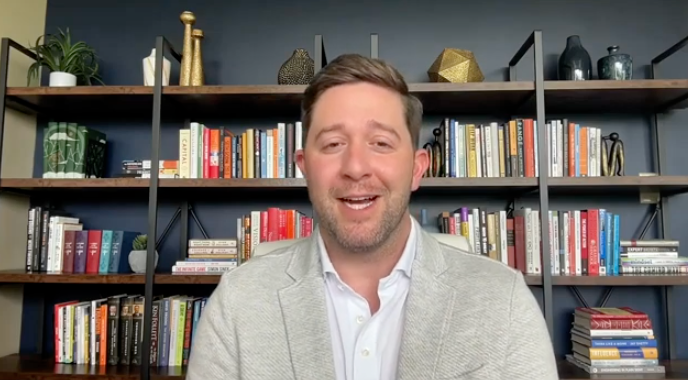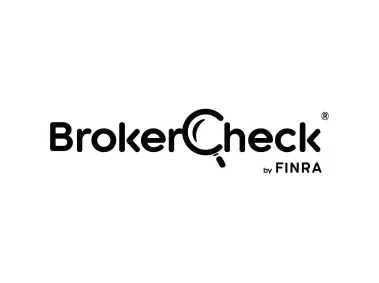David Talley, CFP®, ChFC®, EA is an entrepreneur-turned-advisor with over 15 years of experience helping clients make smart financial decisions. As founder of Talley Financial, he blends tax expertise with real-life insight to guide families, entrepreneurs, and advisors. When he’s not working, he’s spending time with his wife and kids or exploring the Appalachian Highlands.
What Tax Planning Really Looks Like - What Most People Get Wrong

Table of Contents
- What Most People Get Wrong About Tax Planning
- Step 1: Safe Harbor Planning
- Step 2: Projecting Your Actual Tax Liability
- Who Benefits Most From Tax Planning
- Step 3: Choosing the Right Strategies for the Year
- Why It All Matters
- What To Do Next
What Most People Get Wrong About Tax Planning
Most people think of tax planning as something their CPA does right before April 15th. Maybe they find a last-minute deduction or double-check your return to make sure there are no errors.
That’s not tax planning. That’s tax preparation. And while it’s important, it only looks backward.
Tax planning, on the other hand, looks forward. It helps you reduce your tax burden not just this year, but over the course of your lifetime. Done right, it aligns your income, investments, and business decisions with the tax code to put more money in your pocket.
In this article, I’ll walk you through what tax planning actually looks like, how we do it at our firm, who needs it most, and why it matters more than most people realize.
Step 1: Safe Harbor Planning
The first step in effective tax planning is making sure you avoid IRS underpayment penalties. That’s where safe harbor planning comes in.
For most high earners, the IRS requires you to pay in 100% to 110% of your previous year’s tax bill — or 90% of your current year’s projected tax bill — to avoid penalties.
We revisit this analysis twice a year:
- Spring: Based on your expected income and deductions
- Fall: With real numbers and year-to-date data
Safe harbor planning protects you from surprises and brings clarity to your cash flow.
IRS guidelines on estimated tax payments
Step 2: Projecting Your Actual Tax Liability
If you don’t know what your tax bill is likely to be, it’s difficult to plan effectively.
Projecting your liability helps you:
- Decide how much to contribute to retirement accounts
- Time charitable giving or large business purchases
- Set aside the right amount for estimated payments
- Evaluate whether to accelerate or delay income
IRS federal tax bracket thresholds
Who Benefits Most From Tax Planning
We typically see the biggest impact for:
- Entrepreneurs with growing or volatile income
- High-income professionals with bonuses, stock options, or equity comp
- Business owners preparing for or going through a sale
- Executives facing a buyout or liquidity event
- Pre-retirees managing future Required Minimum Distributions (RMDs)
- Real estate investors selling property or leveraging depreciation
Step 3: Choosing the Right Strategies for the Year
Strategies to Lower Income This Year:
- PTET elections, Solo 401(k), SEP IRA
- Maximize deductions (vehicle, home office, equipment)
- Entity structure changes, cost segregation studies
- Donor-Advised Fund (DAF) contributions
- QBI Deduction optimization
Strategies to Intentionally Increase Income:
- Roth 401(k) contributions
- Mega backdoor Roth conversions
- Tax gain harvesting in low-income years
Why It All Matters
Real tax planning is proactive, personalized, and integrated — done before year-end and tied to your long-term goals.
Year-End Tax Strategies
Smart Tax Planning for Early Retirement
PTET Breakdown
What To Do Next
If you’re wondering whether tax planning is right for you, that’s why we offer a Strategy Session. You’ll walk away with clarity — whether or not we work together long-term.



